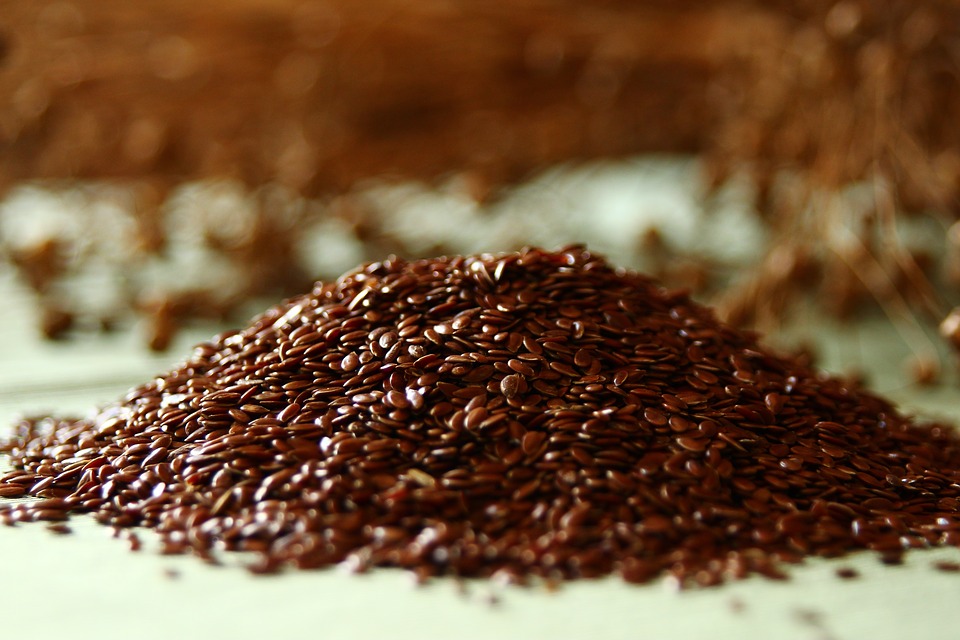Alzheimer’s disease is expected to double in the coming ten years as per the report of journal of alzheimer’s disease and no cure has been found. The precipitous decline of memory and independence associated with cognitive decline, dementia, and Alzheimer's disease is emotionally and financially devastating to patients, their families, and caretakers.
The dietary approaches for control of cognitive decline has increased. In particular, the omega-3 fatty acids and herbs have shown anti-amyloid, anti-tau and anti-inflammatory actions in the brains of animals. Dietary support with high omega-3 levels increase blood flow in specific areas of the brain.
Studies from animal models and cell cultures have shown that omega-3 fatty acids (n-3 FAs) are neuroprotective during development and aging.
Omega-3 Index, a measure of the blood concentration of two omega-3 fatty acids. Dietary long chain polyunsaturated fatty acids belong to omega (ω)-3, -6 or -9 series. Eicosapentaenoic acid (EPA) and docosahexaenoic acid (DHA), investigators found a statistically significant correlation between higher blood flow and higher Omega-3 Index. In addition, researches evaluated the neuropsychological functions of the subjects and found that omega-3 levels also correlated with various psychological feelings using a standardized test battery . Both experimental and clinical studies demonstrated the beneficial effect of ω -3 fatty acids Eicosapentaenoic Acid (EPA) and Docosahexaenoic Acid (DHA) against human ailments including cardiovascular diseases and rheumatoid arthritis and Alzheimer’s disease.
Our Nature has provided us with an abundance of precious gifts. Fish is one of them. It is an important part of the food chain and is considered one of the healthiest forms of animal food. Rich in good fats likeOmega-3, docosahexaenoic acid with vitamins and minerals, Fish is known to be healthy for the heart and brain. It can ward off a number of lifestyle ailments if consumed regularly in moderation.
Bacopamonnieri, also called brahmi, water hyssop, thyme-leaved gratiola, and herb of grace, is a staple plant in traditional Ayurvedic medicine. Bacopamonnieri boost brain function and alleviate anxiety and stress, among other benefits.Bacopamonnieri contains active compounds called bacosides, which have been shown to have antioxidant effects, especially in the brain.
bacosides, the main active compounds in Bacopamonnieri, have been shown to neutralize free radicals and prevent fat molecules from reacting with free radicals.When fat molecules react with free radicals, they undergo a process called lipid peroxidation. Lipid peroxidation is linked to several conditions, such as Alzheimer’s, Parkinson’s, and other neurodegenerative disorders.
A Study showed that treating rats with dementia with Bacopamonnieri reduced free radical damage and reversed signs of memory impairment. Bacopamonnieri contains active compounds called bacosides, which have been shown to have antioxidant effects, especially in the brain.
Chia seeds are not only rich in omega 3 but also vitamins, minerals and dietary fibers. Loaded with calcium, protein and magnesium, these seeds lower the risk of type 2 diabetes, improve exercise performance and also provides health benefits to the brain.Being the richest source of Omega 3 fats, flaxseeds are considered to be a superfood. Often ground or used to make oil, these small seeds help in fighting cancer, reducing sugar cravings and promoting weight loss.
Most plant foods contain at least small amounts of phytonutrients called lignans. Lignans are unique fiber-related polyphenols that provide us with antioxidant benefits, fiber-like benefits, and also act as phytoestrogens. Among all commonly eaten foods, researchers now rank flaxseeds as the good source of lignans in human diets.
Flaxseeds contain about 7 times as many lignans as the closest runner-up food (sesame seeds). They contain about 338 times as many lignans as sunflower seeds, 475 times as many as cashew nuts, and 3,200 times as many lignans as peanuts.
When we think about antioxidant-rich foods, the first foods that come to mind are typically vegetables and fruits. Of course, foods in both of these food groups can be outstanding sources of antioxidants! Yet according to recent research, flaxseeds also belong high up on our list of antioxidant-rich foods. When flaxseeds are compared with other commonly eaten foods in terms of their total polyphenol content (polyphenols are one very important group of antioxidants), flaxseeds rank 9th among 100 commonly eaten foods. Flaxseeds turn out to be significantly higher in polyphenol antioxidants than fruits like blueberries or vegetables like olives. The antioxidant benefits of flaxseeds have long been associated with prevention of cardiovascular diseases and have recently also been tied to decreased insulin resistance.1 tbsp orally, two-three times a day. Or 15-50 g/day. As per researches Flaxseed has no known severe interactions with other drugs.
Above dietary support give control in Alzheimer’s disease. Good lifestyle management like 3-5 km walk in a day give support to breathing which provide enough oxygen to brain. Regular practice of yoga and meditation can improve brain functioning and increase energy level .manysurvey report shows that yoga boost the brain's executive functions, cognitive abilities linked to goal-directed behavior and the ability to control knee-jerk emotional responses, habitual thinking patterns and actions.
